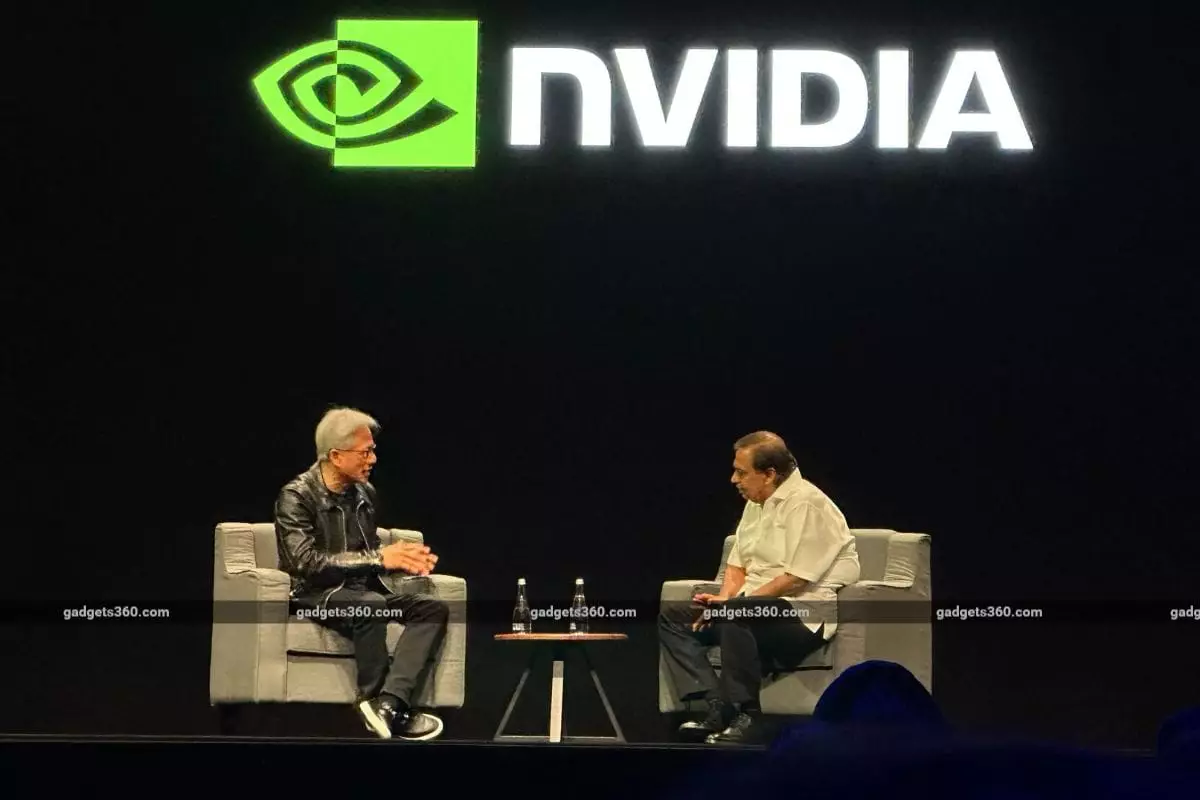In a recent address in Hong Kong, Jensen Huang, the CEO of Nvidia, articulated his belief in the enduring nature of global collaboration in technology, despite the potential for stricter U.S. export regulations under the new administration. Huang’s comments come in the context of a political landscape that has increasingly prioritized national security concerns over international trade, particularly with countries like China. The previous administration, led by Donald Trump, imposed significant restrictions on U.S. technology sales abroad, a strategy that has largely persisted under President Joe Biden. Huang’s reaffirmation of global collaboration as a cornerstone of technological progress highlights the dichotomy between political policies and the inherent desire for scientific advancement across borders.
Huang noted, “Open science in global collaboration, cooperation across math and science has been around for a very long time.” This statement underscores a fundamental truth about scientific progress: innovation often thrives on cooperation and the sharing of knowledge. While governmental regulations may impose constraints, the underlying desire for cooperation among scientists and technologists remains robust. Huang’s confidence in overcoming these challenges is commendable, as it reflects an understanding that the drive for innovation is often stronger than political divides.
The Dawn of the AI Era
During his address at the Hong Kong University of Science and Technology, Huang proclaimed the onset of an “age of AI.” Accepting an honorary doctorate in engineering, he emphasized how artificial intelligence is not just another technological advancement; it represents a seismic shift in how industries operate and how scientific inquiries are conducted. He posited that AI stands as “the most important technology of our time,” suggesting that its implications will be felt across all sectors, from healthcare to finance.
Huang’s assertion that Nvidia has “reinvented computing” with the invention of graphics processing units (GPUs) demonstrates his company’s role as a pioneer in the realm of advanced computing technologies. The narrative of GPU innovation reflects a broader trend whereby computational power is increasingly used to tackle complex problems, creating what Huang described as a “new industrial revolution.”
A Call to New Generations
Inspiring the next generation of professionals, Huang shared his wish that he could start his career anew in this transformative environment. He encouraged graduates to embrace the opportunities that the current era offers, stating that they are at “the starting lines with everybody else.” Such encouragement is particularly poignant: as technological landscapes shift, the potential for young innovators to contribute to significant advancements in science and technology has never been greater.
Huang’s vision suggests that today’s graduates are equipped with the “instruments necessary to advance science” in unprecedented ways, tackling what were once deemed insurmountable challenges. This optimistic perspective fosters a sense of urgency and responsibility among new professionals to harness their skills for societal good.
Jensen Huang’s insights during his visit to Hong Kong reflect a larger narrative concerning the future of technology and collaboration in a politically complex world. His emphasis on global cooperation, the transformative potential of AI, and the empowerment of new generations all paint a picture of a rapidly evolving technological landscape where challenges are met with innovation and collaboration.

